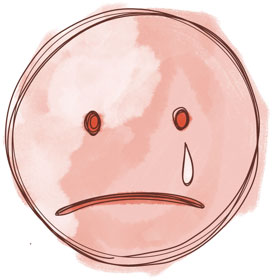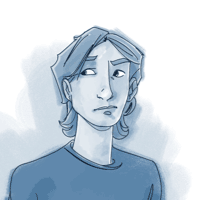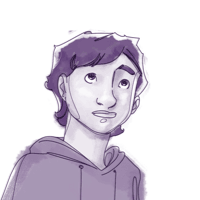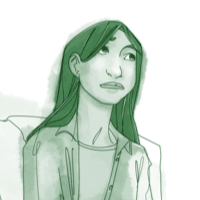


Talking About Death and Dying
“Unless she brings it [discussion of death] up, like, I’m not gonna bring it up…‘cause I don’t want to make her any sadder than she already is. ”

This is a tough topic. We don’t know many people who like to talk about this subject. Most people run far from it. But what we know is how important it is to talk about loss and express your feelings, because this can be a really difficult time.
You and your family deserve to talk about how things are changing, what the loss of your family member will look like, and what do you do after they are gone. Pushing these feeling down can only make things worse—sometimes many years later. So, having honest open conversation now is so important.
What do you ask? What do you want to know? Everyone has questions, including young caregivers like you.
- What will the death look like?
- How will it be handled?
- Will my parent remain in the home?
- Can I be present during the death?
- What will happen to me when the death occurs?
- What will the services or funeral look like?
- What supports are in place?
- Where will we live after the parent dies?
Do any of these questions sound familiar? You may not have wondered about all of them. But I bet you wondered about at least one. These are very important questions because they help you and your family process the next steps and how things will change.

Ian
People assumed Ian had accepted his dad’s disease and the fact that he was slowly dying.
His dad had ALS for so long, it was just a part of their lives. But it was very hard for Ian, because he knew about ALS, but not much about what it meant to actually lose his dad. Ian’s dad had progressed so slowly that it was almost like they forgot he would die of the disease. But then his dad got really bad and needed full-time care. Suddenly it was right in front of them. Hospice was brought in, a huge bed was put in the living room, and all these new people came and went. It was super overwhelming.
If you were Ian, what would you do?
-
Even though Ian had good friends, he decided to talk to his older, 19-year-old cousin, Steve. Steve lost his dad to a car accident several years ago, so he knew what it felt like to lose a parent. Ian asked if Steve would tell him what it was like when his dad died and what they did next, since Ian felt so completely overwhelmed. Steve was really helpful, letting Ian know it will be different for him, but that what he is feeling now is pretty common. Even though Steve’s dad had an accident, he did not die for almost 6 months. Steve felt the loss of his dad even before he died, which is exactly what Ian is feeling. Ian feels bad even being in the same room with his dad because he is not his dad, or not like he has always been. All Ian can think about is what he is losing, which makes him feel guilty. Steve assures Ian that is OK—and that he felt the same way.
-
Ian asked his mom: what will happen next? Since his dad had such a long trajectory, it was hard to answer. She felt it was getting close but could not say for sure. She encouraged him to keep talking about it and said she would do her best to answer as many questions as possible. Even though they had lived with it for so long that they thought they knew everything, they actually never talked about death and dying. Ian told his mom he felt like his dad was gone, even though he was still there. His mom felt the same way. They were grieving before he died. Ian asked what they would do when he died, since they were always so focused on his dad. His mom said she actually did not know but that she was thankful they could figure it out together, and he was thankful that he’d reached out to start it.
-
Ian knew that his dad was dying—and he just went with it. He did everything he was supposed to do and did not ask any questions. He felt like he needed to “grow up” and be the man of the house, even though he felt unsure as to what would happen next. His basketball coach kept checking in, but Ian said he was “fine.” Even though the coach was pretty sure Ian was not fine. His concentration was off, and he had to sit out a game because he missed so many practices. His dad was dying, and Ian felt so alone.
Continue the Journey
You Made ItView another journey in “Talking About Death and Dying”

